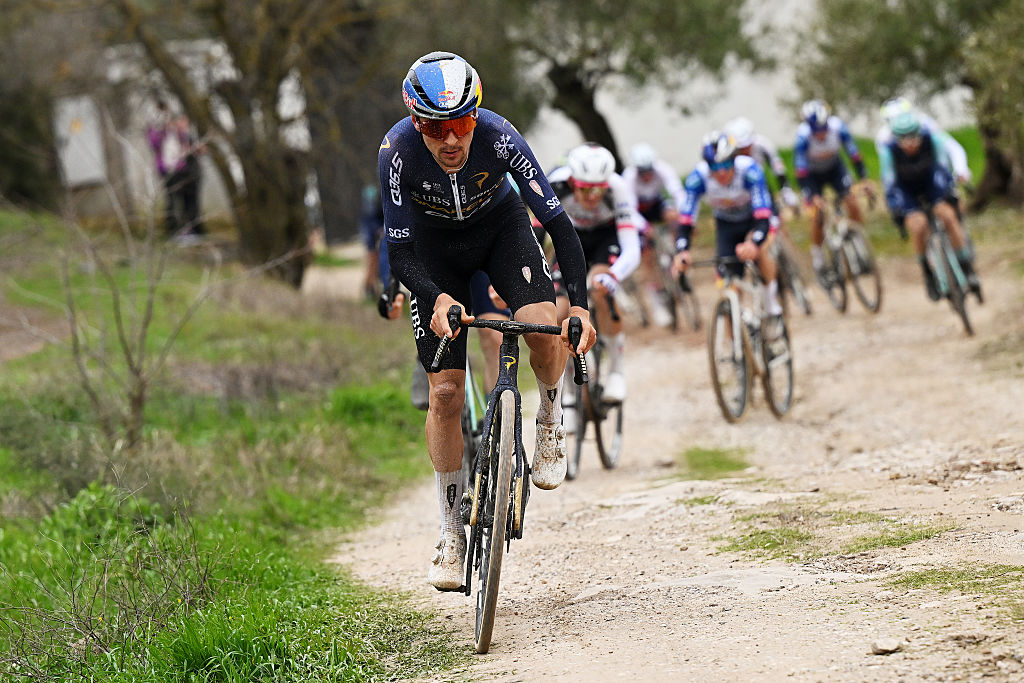The higher you fly, the harder you fall
By Hedwig Kröner in Paris Finally, a blond Dane stepped into Richard Virenque's footsteps: Michael...
The latest race content, interviews, features, reviews and expert buying guides, direct to your inbox!
You are now subscribed
Your newsletter sign-up was successful
By Hedwig Kröner in Paris
Finally, a blond Dane stepped into Richard Virenque's footsteps: Michael Rasmussen, the former mountain bike World Champion, will take his polka-dot jersey home to the Northern European, dead flat country of Denmark on Monday. He will certainly be remembered for his great performance at this Tour de France, not only winning the mountains competition, but also taking a stage victory.
Nevertheless, his accomplishments might make him feel bittersweet in the end: His third placing on GC slipped, just as he did in the time trial, down to seventh in just 55.5 kilometres. Still, in the bid to protect his podium placing against time trial specialist 'Kaiser' Ullrich, the 31 year-old may not have been the victim of too much pressure, but more so the victim of his own perfectionism. Accustomed to taking care of his technical setup in every detail, the man who has been called a 'maniac' by some wasn't able to deal with the unexpected: a sudden rhythm break caused by a crash, and a subsequent bike change.
"I went out and did the course in the morning," the Dane said on the 'morning after', just before leaving on the traditional stage 21 parade to the French capital. "I came back and was actually very happy about a time trial - for the first time! I thought I could do the time trial of my life...I certainly did," he added on a sarcastic note, denying that the reason for his personal nightmare was a nervous one.
"Then, a lot of things went wrong. The only good thing about it was that I'm still here today, that I didn't hurt myself more. Obviously, it wasn't an ideal start to crash only after three kilometres, but it wasn't because my nerves broke down or anything like that. I wasn't concerned about Jan Ullrich - I was convinced that I could do a good time trial and I started out in that frame of mind. Then, everything turned into shit, to say the least."
Asked how he dealt with the disappointment, Rasmussen, replied, "I talked to the sports directors to see what went wrong, because I had to talk to somebody about it after the race. It was a good decision not to talk to the press at that moment - I would have said a lot of bad things about people who have been doing a good job," Rasmussen alluded to the general observation that his team mechanic took too much time to help him out when his rear wheel punctured.
Another sharp observer of the race, Laurent Jalabert, was not too convinced as to whether the Rabo rider's wheel actually had a mechanical. "Obviously, he thought that his rear wheel had a problem because of the crash, and he became obsessed with it," the Frenchman told L'Equipe. "He focused on it more and more, eventually deciding to stop. His team didn't react badly, they just didn't understand what was happening. Rasmussen stopped even though his wheel hadn't punctured; therefore his mechanic got him a brand new one from the roof."
The latest race content, interviews, features, reviews and expert buying guides, direct to your inbox!
Jalabert, himself an expert on the mountains jersey, continued by saying that Rasmussen must have forgotten about the race for all of his distractions. "We saw Rasmussen change bikes again and again. In three hundred metres, he must have lost about a minute. In this kind of situation, you have to forget about the discomfort [of a different bike] and think about the essential. For example, when you crash in the finale of a stage, you don't go to the car to treat you injuries - you take care of it after the finish. It's the same here: You get another bike that works and go flat out. Who cares if it's the wrong one."
Rabobank DS Erik Breukink also spoke to the French daily paper. "There wasn't any particular problem with the [second] bike, but he yelled that he wanted his initial one back. He was out of it after the first crash," Breukink said, at least giving one possible explanation for the first crash by adding, "In training, he took that roundabout on the right hand side; but in the race he took the line of a motorbike in front of him, which was left. He lost his points of reference. I yelled out to him to keep calm, but he was a bundle of nerves."
After that disastrous experience, Rasmussen was seen riding alone on the highway after the finish. "Yes, that's right," he confirmed. "I needed a little time to clear my mind and to think about what happened. And about what could have been done differently. In any case, there is no need to blame anybody but myself for what happened," he concluded. Unfortunately, the memory of it might continue to stain his dotted jersey for some time, be it his own or the public's.
